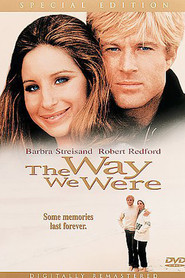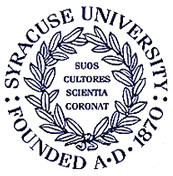
A column by Katherine Kersten of the Minneapolis Star-Tribune reports that the financially strapped Lakeville, Minn., school district (94 teachers let go) found enough money to send a delegation to the annual state “White Privilege Conference” now going on in Bloomington. Carol Iannone at Phi Beta Cons picked up the story, as did blogger Hans […]
Read More
What do we do about the adjunct problem? Everybody knows it exists, and everybody agrees on its elements. Well-qualified, talented, and conscientious people teach multiple courses, sometimes on different campuses, at a few thousand dollars per course. Add up class prep and grading hours and their labor sometimes falls below minimum wage, and they don’t […]
Read More
“There are any number of courses that deal with some group aspect of America, but virtually none that deals with America as a whole. For example, there is African-American history from 1619 to 1865 and from 1865 to the present, but there is no comparable sequence on America. Every course is social or cultural history that looks at the world […]
Read More
Overshadowed by the big political confrontation in Wisconsin is a higher-education story of note: The highly regarded “flagship” Madison campus of the University of Wisconsin seeks permission to secede from the rest of the state public higher education system (yet remain under the state’s oversight and subsidization). While this is being justified now by the […]
Read More
I head an organization, the National Association of Scholars (NAS), that is often accused by its critics on the academic left of nostalgia for days when higher education was an exclusive club for the privileged. The accusation is false. NAS focuses on the enduring principles of the university: rational inquiry, liberal learning, and academic freedom. […]
Read More
The academic gender wars are back in the news, with the Department of Education’s Office of Civil Rights announcing an investigation into a Title IX complaint against Yale University. Sixteen current and former Yale students claim that the university discriminates against women by allowing a sexually hostile environment to flourish. Is there really a problem […]
Read More
My article here, “Professors Should Dress like Professionals,” speculated that the loss of classroom authority was at least partially traceable to a decline in sartorial standards among the professoriate. More, however, is involved than shabby attire. It is the systematic attempt to demolish the line between teacher and students that is the culprit. Consider […]
Read More
The Chronicle of Higher Education‘s recently released annual survey of the salaries of university presidents provides empirical support for the proposition that higher education today appears to be less about achieving lofty goals like disseminating knowledge, building character, promoting virtue and expanding the frontiers of what humans can do than it is about something far more mundane: keeping […]
Read More
One feature of academia’s less reputable quarters is the imperative to shun the obvious and prosaic, even when the obvious and prosaic happen to be true. As Theodore Dalrymple noted in his review of Thomas Sowell’s Intellectuals and Society, Intellectuals, like everyone else, live and work in a marketplace. In order to get noticed they […]
Read More
Judged by the recent avalanche of autopsy-like books, American higher education appears troubled. Alleged evil-doers abound, but one culprit escapes unnoticed–the horrific sartorial habits of many of today’s professors. Don’t laugh. As Oscar Wilde brilliantly observed, only shallow people do not judge by appearances. Indeed, I would argue that much of what plagues today’s academy […]
Read More
The American Federation of Teachers has just issued a report that outlines the institutional conditions of “student success,” including the role of the faculty. (The report itself is here.) Much of the document is predictable. The criticism of reigning assessments of student learning and graduation rehearse familiar arguments about “one-size-fits-all” and “not-all-learning-is-measurable” and “insufficient-funding-for-authentic-assessment.” And, […]
Read More
A recently-decided case involving academic freedom all but defines a frivolous lawsuit. The website for the Center for Holocaust and Genocide Studies (CHGS), based at the University of Minnesota, contained an item noting “unreliable websites” on Holocaust issues. The link’s purpose–to discourage students from using these sites in their research–was clearly academic. (The site’s wording: […]
Read More
The American Scholar is the official journal of the Phi Beta Kappa Society — the college honorary society– and like The New York Times and The New York Review of Books, its focus is highbrow and its writing quality generally of a high order. Also like the Times and the NYRB, when dealing with current political […]
Read More
By now, most people who follow either politics or higher education know the story of William Cronon. The University of Wisconsin professor published a lengthy post critiquing the policies of Governor Scott Walker, and a week later penned a New York Times op-ed raising similar themes. In between the dates of the two essays, the […]
Read More
Forty years after co-education came to Princeton, the campus has been in a tizzy because, Inside Higher Ed reported a few days ago, “female undergrads tend to eschew high-profile executive positions at the most prestigious student organizations in favor of less glamorous — but often equally labor-intensive — leadership roles.” In the decades after Princeton went co-ed in 1969, women regularly rose […]
Read More
One day last March Jessica Felber, then 20, a Jewish undergraduate at the University of California at Berkeley, was standing on her campus, holding a placard bearing the words: “Israel Wants Peace.” At that moment, Husam Zakaria, a Berkeley student leader of Students for Justice in Palestine, reportedly rammed Felber from behind so hard with […]
Read More
If you care about free speech on college campuses, there could hardly be a more sympathetic figure than Jonathan Lopez. A student at Los Angeles City College (LACC) in 2008, when California voters rejected Proposition 8 , he was one of the first victims of the rage of gay-rights advocates and their academic allies: a […]
Read More
As K C Johnson noted here yesterday, Stanley Fish and Walter Benn Michaels have a conversation at the New York Timesopinionator blog in which both advocate unionization (see here). Their immediate target is an op-ed by Naomi Schaefer Riley in USA Today entitled “Why Unions Hurt Higher Education” (see here). It should be noted that Michaels and Fish are both English professors, which puts them in […]
Read More
The cosmology of ideas to fix America’s supposedly troubled higher education abound. Some resemble comets–small amounts of rock and frozen toxic gas that periodically appear, light up the sky and then vanish only to reappear decades later. Today’s comet-like elixir is directed at the NCAA’s Division I men’s basketball tournament (“March Madness”). The facts are […]
Read More
At about the same time as the release of MIT’s new study on the status of its women, which I discussed recently here, two more studies appeared on the anemic underrepresentation on higher education faculties of another marginalized group, political conservatives. Both studies, by Neil Gross, Ethan Fosse, and Jeremy Freese, conclude that “self-selection,” not […]
Read More
The latest MIT report on the status of its faculty women– earlier ones appeared in 1999 and 2002–finds impressive progress and “an overwhelmingly positive view of MIT,” but the key word in the seemingly endless stream of reports on women in STEM fields, “marginalization,” inevitably pops up as well, this time in reaction to “the […]
Read More
In Monday’s edition of The Hill, Juan Williams penned a column advocating defunding NPR. There are lots of reasons why such an approach might be a good idea–we’re in very tough budget times; credible allegations of bias have been made against the organization; a far wider array of media outlets exists now than when NPR […]
Read More
There’s no federal law against bullying or homophobia. So the Department of Education recently decided to invent one. On October 26, it sent a “Dear Colleague” letter to the nation’s school districts arguing that many forms of homophobia and bullying violate federal laws against sexual harassment and discrimination. But those laws only ban discrimination based on sex […]
Read More
In theory, conservatives and liberals should have an equal concern with the state of higher education in America today, because all involved in politics should want an informed citizenry. In practice, however, liberals tend to ignore higher-ed reform. The race/class/gender triumvirate that dominates the contemporary academy translates into African-Americans, unions, and feminists in the political […]
Read More
In Savannah, Georgia, an ambitious experiment in higher education is under way. Ralston College aims to offer a back-to-basics liberal arts experience , stripped of the amenities and assumptions of the modern university. Though just now getting off the ground–it has yet to accept student applications–its stated mission is clear. Students will experience rigorous coursework […]
Read More
Howard Zinn, the late self-described “socialist anarchist” history professor and mentor to the New Left, would have been proud of the way the Wisconsin protests rolled along. The weeks-long sit-in of the Wisconsin state capitol building–heavily populated by teachers and students–exemplified the kind of “participatory democracy” his associate Tom Hayden promoted in the Port Huron […]
Read More
Last year, Andrew Hacker and Claudia Dreyfus published Higher Education? How Colleges Are Wasting Our Money and Failing Our Kids–And What We Can Do About It, a resounding broadside against campus policies and practices. They berated the system for producing useless research, creating cushy working conditions, neglecting undergraduates, and reproducing elitism. Hacker and Dreyfus sometimes […]
Read More
In recent years Syracuse University has decided to make its undergraduate student body more “diverse” and “inclusive”–code words for racial preferences that translated into a freshman class for the fall of 2010 that was 30 percent black and Latino. The class of 2014 was also 26 percent eligible for federal Pell grants to low-income students. […]
Read More
Social psychology has long been a haven for left-wing scholars. Jonathan Haidt, one of the best known and most respected young social psychologists, has heaved two bombshells at his field–one indicting it for effectively excluding conservatives (he is a liberal) and the other for what he sees as a jaundiced and cult-like opposition to religion […]
Read More
Art Robinson, an unsuccessful Republican candidate for Congress last fall in Oregon’s 4th district, is making very serious allegations against Oregon State University—that as payback for his campaign, the university is moving to expel three of his grown children from Ph.D. programs, and in two of these cases, allowing other scholars to take over their […]
Read More